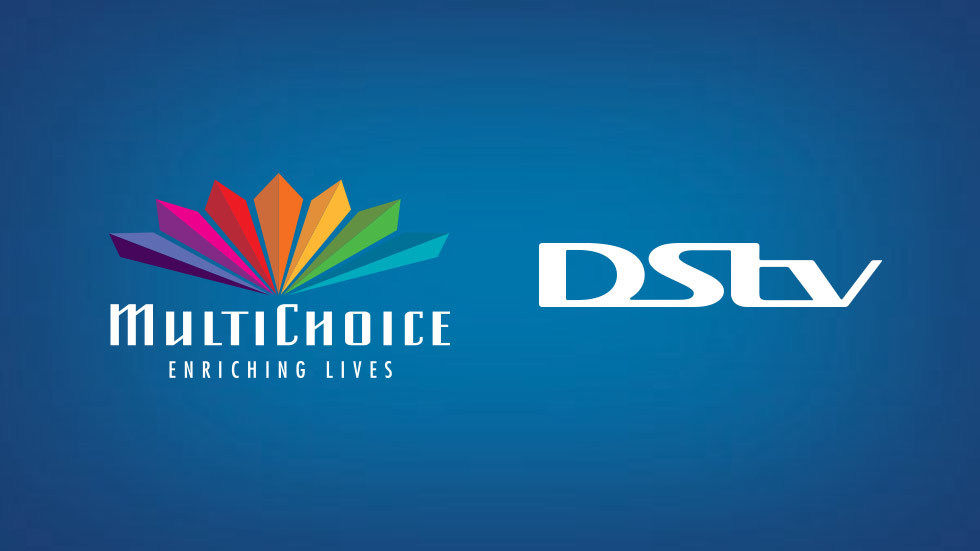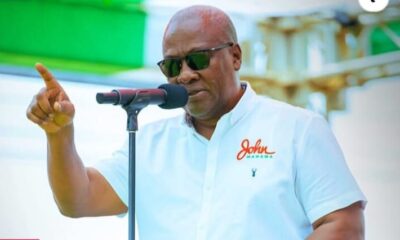Technology
Mixed Grill for Multichoice Subscribers
Published
8 years agoon

- Mixed Grill for Multichoice Subscribers
MultiChoice has announced that it will lower monthly DStv subscription fees from today in several African countries where the DStv prices were out of line with the average and will add a temporary Harry Potter pop-up channel from M-Net.
DStv will also add several TV channels to lower-tiered bouquets in several African countries and make more soccer viewing available on SuperSport channels given to its lower-tiered offerings, to boost the content offering for cheaper DStv packages and to add content value.
Several countries, including Kenya, Zimbabwe, Malawi and others will see a significant reduction in monthly DStv subscription fees from today. But curiously its home country, South Africa as well as Nigeria which are also its two biggest markets, are excluded from this gesture.
The DStv price reduction comes as tough economic conditions facing consumers and greater competition in the pay-TV market from rivals such as StarTimes, EcoNet, Zuku and others, have seen the pan-African pay-TV operator decide to lower prices to try and stem the tide of MultiChoice Africa customers cancelling subscriptions.
In Nigeria DStv prices are not lowered but some new local channels such as ROK are being added and several channels previously only accessible to DStv Premium subscribers are being opened to lower packages to add bigger content value to cheaper subscription options.
There are indications that hundreds of thousands of the subscribers of the pay TV firm might not renew their monthly subscription if they are exempted from the fee reduction because, as they argued, what is sauce for the geese is also sauce for the gander. The firm is alleged to be making an average of about N8 billion from its over 4 million subscribers every month in Nigeria and about N80 billion as turnover per year.
MultiChoice Africa Chief Executive Officer Tim Jacobs, said the dollar rate is affecting the pay TV subscription rates. “Over the years, our currencies have devalued, sometimes there has been volatility then they strengthen but, generally speaking. Our currencies have devalued as a continent against the US dollar,” he said.
Uganda
In Uganda, it announced about 15 per cent cut in subscription fees, in a move to entice more customers amid weak economic realities.
“We are facing hard economic times not just as a company but also our customers,” MultiChoice Uganda Public Relations and Communications Manager, Ms Tina Wamala, said.
“This significant price drop, coupled with the major boost in entertainment value across all DStv bouquets demonstrates our commitment to ensuring DStv customers receive the best possible access to great entertainment and outstanding value,” its General Manager, Charles Hamya,, explained in a statement.
Malawi
Under the reduction regime, DStv Premium in Malawi is down to K55,600 from K61,100, Compact Plus is at K35,700 from K42,000, Compact is at K22,300 from K23,800 while Family is reduced to K12,700 from K16,700.
To add more value, DStv Premium has been added with eight HD channels including latest and exclusive first run movies, drama, comedy and sport.
“MultiChoice’s priority is to put customers at the heart of our business and that is why the whole of this year, despite the economic challenges the country is facing, we did not increase our subscription prices.
“It’s been 20 years that we have been doing business in Malawi and we strive to do business differently and that is why tonight’s press briefing is named ‘Business Unusual’,” its Marketing Manager, Chimwemwe Nyirenda said during a press briefing at Atmosphere Restaurant in Blantyre.
Its General Manager, Stephen Knight, said the significant price drop, coupled with major boost in entertainment value across all DStv bouquets, demonstrates commitment to ensuring DStv customers receive the best possible access to great entertainment and outstanding value.
“These changes are not only a defining moment in our MultiChoice story, but also a defining moment in the African Entertainment landscape and we are proud to be pushing hard as we can to delight every television entertainment fan in Africa,” Knight said.
A source who claimed anonymity said the company decided to slash fees in the countries after it observed that about 40 per cent of its subscribers had refused to renew their subscriptions due to economic recession that has been biting harder in those countries.
“The stiff DStv price hikes put subscribers under pressure in those countries and we have lost about 300,000 subscribers in the countries in one year as people could no longer afford the service or no longer saw it as valuable enough. When reviewing our packages and prices in each country, we take into account local dynamics such as inflation, content costs, foreign exchange rates, local taxes and overheads required for each business.
“To compensate Nigerian viewers, we will introduce more amazing channels to the existing entertaining programmes. We have also embarked on an aggressive marketing and follow up innovation to ensure most of our subscribers do not abandon their bouquets. We call subscribers a few days to the expiration of their subscriptions to remind them about the reasons they should not miss out of the global village,” said the source.
New channels
New TV channels such as Eva+, a sister channel to the telenovela channel Eva, will be added to DStv with several channels that will be upgraded to high definition (HD) quality similar to South Africa.
While DStv Premium subscribers across the continent including South Africa can watch the new pop-up M-Net channel M-Net Movies BlockParty on DStv channel 109, MultiChoice in a statement says DStv subscribers can also “look forward to more exciting pop-up channels in the coming months like the M-Net Movies Harry Potter pop-up channel which will run from 4 to 14 November”.
The Harry Potter pop-up channel will show all of the Harry Potter movies before the debut in theatres of the first movie of the new spin-off film series, Fantastic Beasts and Where to Find Them that is scheduled for a worldwide release on November 18.
South Africa, Nigeria
MultiChoice in South Africa says South African and Nigerian DStv subscribers won’t see a price reduction and that the price of DStv Premium in South Africa compared favourably with the pricing in other African countries.
“We review the DStv prices once a year when we do our business planning – our prices for next year will be announced before April 1, 2017.
“When reviewing our packages and pricing in each country, we take into account local dynamics such as inflation, content costs, foreign exchange rates, local taxes and overheads required for each business.
“We’ve done a lot of research into what pay-TV costs in other parts of the world, and we believe that DStv offers good value for money in the countries in which it operates.
“In South Africa, we’ve implemented a number of cost-saving options for our customers – those who pay annually receive one month free, and our Price Lock packages enable customers to freeze their package price for two years,” MultiChoice South Africa said.
Fee increase for Nigeria coming
Instead of a reduction, the General Manager, Sales and Marketing, MultiChoice Nigeria, Martin Maputo, has warned that subscription fees may go up if the foreign exchange (forex) problem facing the country is not addressed. He spoke in Lagos while unveiling new content upgrade on all DStv bouquets.
Maputo said currently, DStv is trying as much as possible to avoid any price increase but instead concentrating on upgrading its contents across all bouquets.
However, he said if government fails to curtail the forex crisis which has made it more expensive for the company to buy foreign content, especially English premiership among others, it might be forced to consider price increase.
“Most of the content we buy such as EPL and others from abroad are dominated in pounds, dollars. So, we are not only operating in the market but also responding to the market. At this stage, we are trying as much as we can to avoid any price increase but if there is nothing done to curtail the forex issues, we might be forced to increase (our subscription fees),” he warned.
Is the CEO and Founder of Investors King Limited. He is a seasoned foreign exchange research analyst and a published author on Yahoo Finance, Business Insider, Nasdaq, Entrepreneur.com, Investorplace, and other prominent platforms. With over two decades of experience in global financial markets, Olukoya is well-recognized in the industry.

You may like
-


President Tinubu Presents N47.9trn 2025 Budget As Debt Servicing, Security, Infrastructure Take Lion Shares
-


I’m Not Nigeria’s PR, UK Party Leader, Kemi Badenoch, Tells Shettima
-


Dangote Refinery Launches First PMS Export to Cameroon in Historic Partnership with Neptune Oil
-


Ghana’s President, John Mahama Unveils Plans For Citizens After Victory
-


AFDB Urges African Countries To Adopt Homegrown Strategy To Tackle Economic Challenges
-


Nigeria and France Forge Strategic Alliance to Boost Solid Minerals Sector
Sign up for our Daily newsletter
We’ll be in your inbox every morning Monday-Saturday with all the day’s top business news, inspiring stories, best advice and reporting from Entrepreneur, To share your newsletter use this email: entrepreneuredition@











